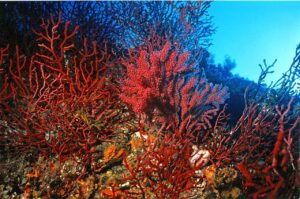on July 3rd 2021 the EU SUP Directive came into force, but how does it work and which Single Use Plastic items are actually banned from now onwards?

The SUP Directive was initially proposed to target items that are commonly found on beaches as well as abandoned fishing gear.
The items being addressed by the Directive are:
- Plastic cotton bud sticks – banned
- Plastic cutlery, plates, straws and stirrers – banned (including those with plastic coating)
- Balloons – EPR scheme & awareness raising
- Sticks for balloons – banned
- Food containers in expanded polystyrene – banned
- Oxo-degradable plastics – banned
- Cups for beverages in expanded polystyrene – banned
- Beverage containers – EPR scheme
- Cigarette butts – EPR scheme & awareness raising
- Plastic bags – EPR scheme
- Packets and wrappers – EPR scheme
- Wet wipes and sanitary items – EPR scheme & awareness raising
- Plastic bottles – target for recycling collection
- Fishing gear – EPR scheme
Single-use plastics (SUPs) are produced to be used once, yet last 500 years in the environment.
Product Bans:
Article 5: outright bans of some SUPs for which non-plastic alternatives are available.
Design Requirements:
Article 6: target for manufacturers to use 25% recycled content in PET beverage bottles by 2025 and 30% in all plastic beverage bottles by 2030. In addition, product design measures stipulate that by 2024 container caps and lids remain attached (“tethered”) to the container.
Target for separate collection of plastic beverage bottles for recycling:
Article 9: Each member state will be required to collect 77% of single-use plastic bottles with caps and lids by 2025, and 90% by 2029.
Extended Producer Responsibility scheme (EPR scheme):
Article 8: Producers of certain SUPs will need to cover costs of waste management for these products. This includes: awareness-raising measures, litter clean-up, transport and treatment.
Awareness Raising Measures:
Article 4 & 7: labelling requirements to be added to certain products to better communicate to consumers the damages of SUPs as well as how to appropriately dispose them.
What about bioplastics?
The SUP directive also includes items made from bioplastics, as these take just as long to decompose.
Which Member States are adhering to the SUP
Technically, by EU law all Member States now had two years to implement the measures of the directive. However, in practice not all are adhering by the deadline: July 3rd 2021.
The countries we are happy with:
- France – law approved
- Hungary – law approved
- Italy – law almost approved
- Spain – law almost approved
- Greece – law approved
- Germany – law approved
- The Netherlands – law approved
The countries that have not yet implemented any SUP regulations:
- Bulgaria
- Czech Republic
- Poland
- Romania













